IN THIS ISSUE of Charleston Currents #11.11 | Jan. 21, 2019
FOCUS: Remembering Dr. King and the 6 principles that guided his work
COMMENTARY, Brack: S.C.’s role in 2020 presidential process is big, really big
IN THE SPOTLIGHT: Charleston RiverDogs
PHOTO ESSAY: Neglecting part of our history
GOOD NEWS: Food bank helps workers impacted by shutdown
FEEDBACK: Send us a good, snippy letter
MYSTERY PHOTO: It’s not a beach resort
S.C. ENCYCLOPEDIA: Gov. Martin F. Ansel
CALENDAR: Parade, breakfast are highlights for MLK celebration
FOCUS: Remembering Dr. King and 6 principles that guided his work
By Elliott Brack, special to Charleston Currents | As we observe Martin Luther King Day, it’s fitting to review the King Philosophy. Dr. King viewed three evils, that of poverty, racism and militarism that he said formed a vicious cycle. He felt these were intertwined and were barriers for reaching his nirvana, what he called the “Beloved Community.”
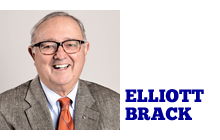 Let’s look at his thoughts in this area, this taken from his view as recorded at The King Center in Atlanta and available on the Internet.
Let’s look at his thoughts in this area, this taken from his view as recorded at The King Center in Atlanta and available on the Internet.
Fundamental tenets of Dr. King’s philosophy of nonviolence are described in his first book, Stride Toward Freedom. The six principles include:
PRINCIPLE ONE: Nonviolence is a way of life for courageous people. It is active nonviolent resistance to evil. It is aggressive spiritually, mentally and emotionally.
PRINCIPLE TWO: Nonviolence seeks to win friendship and understanding. The end result of nonviolence is redemption and reconciliation. The purpose of nonviolence is the creation of the Beloved Community.
PRINCIPLE THREE: Nonviolence seeks to defeat injustice, not people. Nonviolence recognizes that evildoers are also victims and are not evil people. The nonviolent resister seeks to defeat evil not people.
PRINCIPLE FOUR: Nonviolence holds that suffering can educate and transform. Nonviolence accepts suffering without retaliation. Unearned suffering is redemptive and has tremendous educational and transforming possibilities.
PRINCIPLE FIVE: Nonviolence chooses love instead of hate. Nonviolence resists violence of the spirit as well as the body. Nonviolent love is spontaneous, unmotivated, unselfish and creative.
PRINCIPLE SIX: Nonviolence believes that the universe is on the side of justice. The nonviolent resister has deep faith that justice will eventually win. Nonviolence believes that God is a God of justice.
Once stating his principles, Dr. King then went forward with six steps to achieve non-violent social change.
- INFORMATION GATHERING: To understand and articulate an issue, problem or injustice facing a person, community, or institution you must do research. You must investigate and gather all vital information from all sides of the argument or issue so as to increase your understanding of the problem. You must become an expert on your opponent’s position.
- EDUCATION: It is essential to inform others, including your opposition, about your issue. This minimizes misunderstandings and gains you support and sympathy.
- PERSONAL COMMITMENT: Daily check and affirm your faith in the philosophy and methods of nonviolence. Eliminate hidden motives and prepare yourself to accept suffering, if necessary, in your work for justice.
- DISCUSSION/NEGOTIATION: Using grace, humor and intelligence, confront the other party with a list of injustices and a plan for addressing and resolving these injustices. Look for what is positive in every action and statement the opposition makes. Do not seek to humiliate the opponent but to call forth the good in the opponent.
- DIRECT ACTION: These are actions taken when the opponent is unwilling to enter into, or remain in, discussion/negotiation. These actions impose a “creative tension” into the conflict, supplying moral pressure on your opponent to work with you in resolving the injustice.
- RECONCILIATION: Nonviolence seeks friendship and understanding with the opponent. Nonviolence does not seek to defeat the opponent. Nonviolence is directed against evil systems, forces, oppressive policies, unjust acts, but not against persons. Through reasoned compromise, both sides resolve the injustice with a plan of action. Each act of reconciliation is one step closer to the ‘Beloved Community.’
Martin Luther King, 1929-1968: Thank you for these words and this guidance.
Longtime Georgia newsman Elliott Brack is editor and publisher of Gwinnett Forum, a sister publication.
- Have a comment? Send to: editor@charlestoncurrents.com
S.C.’s role in 2020 presidential process is big, really big
By Andy Brack, editor and publisher | South Carolina will again play an outsized role in picking the next presidential candidates for U.S. voters. It’s where the political rubber hits the road.
 In large part, the story is told by the numbers:
In large part, the story is told by the numbers:
Iowa, which holds the first presidential contest every four years, is home to 3.1 million people, 91 percent of whom are white. But its battle, set for Feb. 3, is a caucus of delegates, who are party stalwarts. Participation isn’t ubiquitous.
New Hampshire, which holds the first primary on Feb. 11, is home to 1.3 million people, 94 percent of whom are white. It isn’t a reflection of most of America.
Nevada, an early voting state since 2008, also uses caucuses for its population of 2.8 million, 68 percent of whom are white and 28 percent of whom are of Latino descent. Its caucuses are set for Feb. 22.
South Carolina offers primary elections in which any voter can participate, since voters don’t register by party. It has a population of 5.1 million people, 69 percent of whom are white residents, 27 percent are black and 5.7 percent are of Hispanic background.
Chip Felkel, a moderate Greenville Republican who provides frequent political insight to Canadian television audiences, observed that diversity in South Carolina’s electorate included having a lot of transplants – people who retired here after a business or military career.
“We’re a much better test of different groups and how candidates can appear to different groups,” he said. “We have those groups here. We’re not homogenous like Iowa or New Hampshire.”
Bottom line: South Carolina is the most important of the four states because it offers all registered voters a chance to participate and its demographics are more diverse than Iowa and New Hampshire. And for candidates, South Carolina is a place where candidates get the best test of their messages.
![]() “For Dems, we are the first test of African American support, which is hyper-critical for any would-be nominee,” said Winthrop University pollster Scott Huffmon. “For the GOP, we are the first test of the broad swaths of conservatism. We have large contingents of everything from evangelicals to libertarian-leaning, small-government folks to business Republicans needed to secure the nomination and possibly the White House.”
“For Dems, we are the first test of African American support, which is hyper-critical for any would-be nominee,” said Winthrop University pollster Scott Huffmon. “For the GOP, we are the first test of the broad swaths of conservatism. We have large contingents of everything from evangelicals to libertarian-leaning, small-government folks to business Republicans needed to secure the nomination and possibly the White House.”
College of Charleston professor Gibbs Knotts, who plans on publishing a book about South Carolina’s critical role in the presidential process later this year with colleague Jordan Ragusa, agreed with Huffmon’s observation about the importance of South Carolina’s diversity in the Democratic primary.
![]() “The Republican primary is important because the electorate is very representative of the national Republican electorate,” he added. “We argue that this ‘representativeness’ is the reason that S.C. Republicans have correctly selected the GOP winner in all contests but 2012.”
“The Republican primary is important because the electorate is very representative of the national Republican electorate,” he added. “We argue that this ‘representativeness’ is the reason that S.C. Republicans have correctly selected the GOP winner in all contests but 2012.”
Noted Charleston chef and author Nathalie Dupree, who holds frequent dinner parties where talk often turns to politics, added, “We are important to the Republicans as we are conservative and they can gauge the rest of the country by our response.”
There have been news reports that the S.C. GOP, which continues to tout its First in the South primary online, may not have a 2020 primary. But inquiries to the party for an update went unanswered.
Meanwhile, South Carolina Democrats are preparing for an onslaught of candidates coming to the state in the next year.
“The state’s Democrats have thinned out the field before Super Tuesdays in recent primaries, lifting Barack Obama in 2008 and Hillary Clinton in 2016,” Columbia public relations consultant Bud Ferillo observed. Super Tuesday in 2020 is March 3, three days after the S.C. primary.
Furman University political scientist Danielle Vinson observed that the South Carolina Democratic Party’s presidential primary will test progressives more than moderates because the state is generally more moderate.
“Although we typically don’t see Southern states as particularly important to Democrats when the general election comes around, I think the close races we saw in Georgia and North Carolina put some of the Southern states in play — but only if Democrats figure out how to talk to moderates.
“South Carolina gives them an opportunity to practice. And as they should have learned from 2016, they can’t take any state for granted.”
- Have a comment? Send to: editor@charlestoncurrents.com
SPOTLIGHT: Charleston RiverDogs
 The public spiritedness of our underwriters allows us to bring Charleston Currents to you at no cost. This issue’s featured underwriter is the Charleston RiverDogs, whose ballplayers just finished another great regular season.
The public spiritedness of our underwriters allows us to bring Charleston Currents to you at no cost. This issue’s featured underwriter is the Charleston RiverDogs, whose ballplayers just finished another great regular season.
In 2018, the club celebrated its 25th season (that’s 175 years in “Dog” years!!) and, for the second season in a row, hosted more than 300,000 fans. The team had a 64-72 record, but saw 15 players promoted to higher levels in the club’s structure during the season. Click here to review the season.
The Lowcountry’s leader in sports entertainment, Charleston RiverDogs baseball is an attractive, affordable medium for your group or business. The RiverDogs develop the next major league stars for the 27-time World Champion New York Yankees at one of the finest ballparks in Minor League Baseball — Joseph P. Riley, Jr. Park.
Three short words sum up the everyday approach taken by the Charleston RiverDogs front office. The brainchild of club President Emeritus Mike Veeck, the nine-letter phrase “Fun Is Good” is meant to be a guideline and daily reminder of how employees should approach their jobs and in turn capture the imagination of the fans to turn them into repeat customers.
- Visit the ‘Dogs online at: RiverDogs.com
- To meet all of our underwriters, click here.
Neglecting part of our history
Editor’s Note: For a community that relishes its history, inaction is allowing destruction of a historical gem. Let’s hope state lawmakers will review a reasonable alternative so the historic district’s buildings can be saved. Click here to reach out to the Charleston County legislative delegation, chaired by S.C. Rep. Peter McCoy, R-James Island.
By Don Campagna, special to Charleston Currents | During World War Two, Charleston was homeport for 23 Army-operated hospital ships and was where 75,000 of those most grievously wounded in the European and African campaigns returned to America.
But now, Palmetto Railway, a division of the S.C. Department of Commerce, is in the process of demolishing buildings on the National Register of Historic Places that are located in the Charleston Naval Hospital Historic District in North Charleston. The reason: To build a rail line to connect to port facilities. Even the U.S. Army Corps of Engineers found that constructing a rail spur that will bisect the district will have a “Severe Adverse Effect” on its historical and cultural value.
Nevertheless, Palmetto Railway has insisted on the route, even though there is, as the law requires, a “reasonable and prudent alternative.” An out-of-service track completely avoids the Historic District and the owner, CSX, offered to enter into a shared-use agreement. But that would have also meant sharing the $50 rail fee on each container that will come through the Leatherman Port, so Palmetto Railway opted to sacrifice history for the sake of revenue.
But it would appear that Palmetto Railway is not in compliance with 11 state statutes. It would be helpful if members of the appropriate state legislative committees were to ask the division to appear and justify their actions. Section 6-29-775 of state law on “use of property obtained from the Federal Government.” clearly states that property in the hands of a state agency is subject to the same restrictions as if it was in the hands of the federal government. This is particularly important given the preservation covenants that were part of the deed when the naval base closed allow the feds to take the land back if a state agency violates the terms
By Palmetto Railway’s action, for the sake of a few dollars, the memory of the Greatest Generation’s service and sacrifices will be lost on the graveyard of history.
- Read a 2016 essay on the historic district by Campagna.
These recent photographs show the neglect and decay at the site.
Don Campagna, a U.S. Navy veteran, is the public information officer of the Naval Order of the United States. He lives in North Charleston. Have a comment? Send to: editor@charlestoncurrents.com
GOOD NEWS: Food bank distributing food to furloughed federal workers
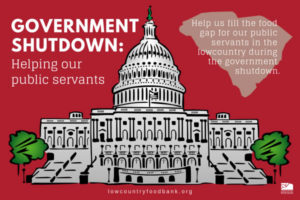 Staff reports | The Lowcountry Food Bank is is making food distributions for federal employees who are furloughed or who are working as essential employees but not getting currently paid and in need of food. The food bank has worked closely with the Federal Executive Association (FEA) of the Greater Charleston Area to help coordinated efforts, according to a press release.
Staff reports | The Lowcountry Food Bank is is making food distributions for federal employees who are furloughed or who are working as essential employees but not getting currently paid and in need of food. The food bank has worked closely with the Federal Executive Association (FEA) of the Greater Charleston Area to help coordinated efforts, according to a press release.
The food bank is preparing shelf-stable food boxes, which it plans to distribute to three of its partner food pantries. Federal workers are encouraged to visit the pantries listed below, or the Lowcountry Food Bank located at 2864 Azalea Drive, North Charleston, SC 29405 to obtain shutdown relief boxes:
- East Cooper Community Outreach: Monday to Friday, 10 a.m. to 4 p.m., (843) 849-9220; 1145 Six Mile Rd, Mount Pleasant, SC 29466
- Cathedral of Praise Bread Basket: Monday to Friday, 9:45 a.m. to noon, (843) 760-6116; 3790 Ashley Phosphate Rd, North Charleston, SC 29418
- Helping Hands of Goose Creek: Monday to Friday, 9 a.m. to 11:30 a.m. (843)533-7132; 104 B Commerce Place, Goose Creek, SC 29455.
“We are already seeing an increase in demand for food assistance from families and individuals who are experiencing hardship due to the shutdown,” said Pat Walker, Lowcountry Food Bank President and CEO. “We anticipate further need as furloughed federal employees and contractors go without paychecks. Our 10-county coastal South Carolina service area includes at least 10,000 federal workers. We want to fill the gap as best we can to help our public servants during this difficult time.”
According to the FEA, there are over 13 federal agencies in Charleston whose employees have been affected by the partial government shutdown. “The FEA is very appreciative of the community’s concern and care for our impacted federal workers who are experiencing this difficult situation,” said Glenn Jeffries, FEA Civilian Chairman. “It means so much to have the support of the community in which we serve.”
The Lowcountry Food Bank is also accepting monetary donations that will be specifically designated to help federal workers fight hunger during the partial government shutdown. A dedicated web page has been created on the Lowcountry Food Bank website. Click here make a financial donation.
“Our normal operations continue, but any reduction in access to food resources undermines decades of progress around fighting hunger,” Walker said. “This partial government shutdown increases hardship for people in our community and takes valuable resources away from the underemployed and the unemployed who depend on the SNAP program. We need continuing support from our community, our donors and our food pantry partners to ensure we can properly assist people who are struggling with hunger in coastal South Carolina.”
In other Good News:
![]() Park closed for renovations. Kiawah Beachwalker Park is temporarily closed to all visitors (including pedestrians) through early April so that the park can undergo extensive renovations and construction. Renovations include replacement of the boardwalk from the parking lot to the existing showers; replacement of the showers and changing rooms; addition of new ADA-compliant parking spaces and paved access pathway to the boardwalk and replacement of the gatehouse and traffic improvements to the entry of the park.
Park closed for renovations. Kiawah Beachwalker Park is temporarily closed to all visitors (including pedestrians) through early April so that the park can undergo extensive renovations and construction. Renovations include replacement of the boardwalk from the parking lot to the existing showers; replacement of the showers and changing rooms; addition of new ADA-compliant parking spaces and paved access pathway to the boardwalk and replacement of the gatehouse and traffic improvements to the entry of the park.
Good place to work. The Medical University of South Carolina (MUSC) has been ranked No. 13 out of 500 organizations on the Forbes 2019 list of America’s Best Employers for Diversity. In addition, MUSC ranked No. 3 among the 30 institutions listed in the education category. “There are three reasons why embracing diversity and inclusion is of pivotal importance,” said MUSC President David J. Cole. “First, it is who we should be as an institution. It has to be part of our vision and self-definition. Second, it is how we build upon who we are and what we can achieve together. Third, it affects the bottom line. It is about being our most productive and effective. People who feel valued are empowered to contribute and to be at their best.”
Rapid transit workshops. he Berkeley-Charleston-Dorchester Council of Governments will hold three interactive, public community workshops Jan. 29 to Jan. 31 in Charleston, Summerville and North Charleston to kick off the next phase of the Lowcountry Rapid Transit project. These meetings will be an opportunity to receive an update on the project and weigh in on the vision for the system.
- Charleston workshop: 6 p.m. to 8 p.m., Jan. 29, International Longshoremen’s Association Building – Community Hall, 1142 Morrison Dr, Charleston, SC 29403
- Summerville workshop: 6 p.m. to 8 p.m., Jan. 30, Alston-Bailey Elementary School. 820 W 5th North St., Summerville, SC 29483
- North Charleston workshop: 6 p.m. to 8 p.m., Jan. 31, The College Center at Trident Tech, 7000 Rivers Ave, North Charleston, SC 29406
The proposed 23-mile Lowcountry Rapid Transit project along Highway 52 (Rivers Avenue) and Highway 78 will provide improved mobility among key regional corridors and a more direct connection for the traveling public. It will also promote the unification and redevelopment of existing communities. Crossing multiple jurisdictions, the proposed project will require significant outreach and coordination with agencies and the public due to its complexity, as well as the cultural and historic nature of the proposed corridor/alignment. Early and robust engagement will be critical to its success. This first phase of project planning will examine and refine alignments by conducting detailed environmental studies, completing conceptual engineering design work, evaluating alternatives for station and terminal state and end-point locations, and soliciting input from regional stakeholders, the local community, and public agencies.
- For more information on the project, visit the project website at www.lowcountryrapidtransit.com.
Development in flood areas. While development continues in South Carolina’s floodplains (not good), sister publication correspondent Lindsay Street of Statehouse Report says work is being done at state and Charleston levels to instill some common sense in future development. Read more here.
FEEDBACK: Mad or in love? Tell us about it
We’d love to get your impact in one or more ways:
Send us a letter: We love hearing from readers. Comments are limited to 250 words or less. Please include your name and contact information. Send your letters to: editor@charlestoncurrents.com. | Read our feedback policy.
Tell us what you love about the Lowcountry. Send a short comment – 100 words to 150 words – that describes something you really enjoy about the Lowcountry. It can be big or small. It can be a place, a thing or something you see. It might the bakery where you get a morning croissant or a business or government entity doing a good job. We’ll highlight your entry in a coming issue of Charleston Currents. We look forward to hearing from you.
MYSTERY: It’s not a resort
It may look like a beach resort, but it’s not. What is it and where? Send your guess to: editor@charlestoncurrents.com. And don’t forget to include your name and the town in which you live.
Our previous Mystery Photo
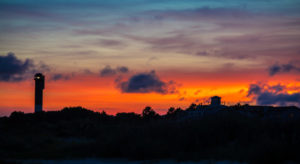 Our previous mystery, “Maybe this one will be easier,” was, in fact, easier for photo sleuths than the earlier mystery. This photo, taken by Charleston-area photographer Josh Corrigan, showed a beautiful silhouette of the lighthouse on Sullivan’s Island. Thanks to Ellis Creek Photography for providing the image.
Our previous mystery, “Maybe this one will be easier,” was, in fact, easier for photo sleuths than the earlier mystery. This photo, taken by Charleston-area photographer Josh Corrigan, showed a beautiful silhouette of the lighthouse on Sullivan’s Island. Thanks to Ellis Creek Photography for providing the image.
Congratulations to those who correctly identified the location of Corrigan’s photo: Larry Simon of Isle of Palms; George Graf of Palmyra, Va.; Chris Brooks of Mount Pleasant; David Brown of Daniel Island; Kristina Wheeler of West Ashley and Bill Segars of Hartsville.
Graf provide more of the story about the lighthouse: “According to us-lighthouses.com, construction of this new lighthouse had begun in 1960 on the northern side of the Charleston harbor. As the federal government had established a lifesaving station on the island in 1895, it was decided to use that location for the lighthouse.
“To help the new lighthouse stand strong against hurricane force winds, it was given a unique triangular shape, capable of withstanding 125-mph winds, by its architect, Jack Graham of the U.S. Coast Guard. After the design, Jack Graham left the Coast Guard, and never knew that his design was used in the construction of the lighthouse, until he saw the completed tower in Motor Boating magazine in August of 1962.
“To get to the top of the lighthouse, personnel can take the elevator, a feature Graham persuaded the Coast Guard to include due to the high number of accidents on lighthouse steps. It is the only lighthouse in the U.S. that includes an elevator. Another unique feature of the lighthouse, as it has offices, is air conditioning. And if the lighthouse should lose power, a generator at the base of the structure ensures the lamps stay lit.
“When the Sullivan’s Island Lighthouse was first completed, it was given a unique red/orange and white paint scheme. Many of the locals complained of the combination, which was later changed to its current color scheme of black and white. The Sullivan’s Island Lighthouse was first illuminated on June 15, 1962 and was proclaimed to be “one of the most powerful lighthouses in the Western Hemisphere.” The six lights produced an amazing 28 million candlepower which was said to be visible for 70 miles at sea. Many neighbors complained of the beam, and due to the dangers associated with servicing the lamps, due to its intense heat, the light’s output was cut back to 1.5 million candlepower in 1972. Even with this reduction, the light is still visible for 26 miles on a clear night.”
- Send us a mystery: If you have a photo that you believe will stump readers, send it along (but make sure to tell us what it is because it may stump us too!) Send it along to editor@charlestoncurrents.com.
HISTORY: Gov. Martin F. Ansel
S.C. Encyclopedia | Martin F. Ansel was born in Charleston on December 12, 1850, the son of German immigrants John Ansel and Frederica Bowers. He received his basic education within the common school system in Walhalla, where the family had moved in 1857. He began to read law in 1868 under the auspices of Columbia attorney James H. Whitner. Admitted to the South Carolina Bar in September 1870, Ansel left his native state and established a law practice in Franklin, North Carolina. In 1876 Ansel returned to South Carolina, relocating to Greenville, where he was among the leading attorneys in the upcountry. On February 21, 1878, Ansel married Ophelia Speight. The couple had two daughters. Three years after Ophelia’s death in 1895, Ansel married Addie R. Hollingsworth Harris.
Ansel served Greenville County in the S.C. House of Representatives from 1882 until 1887. In 1888 Ansel was elected solicitor of the Eighth Judicial District, an office he held for thirteen years. In 1902 Ansel made an unsuccessful bid for the gubernatorial nomination in the Democratic Party primary. Although losing to Duncan C. Heyward, Ansel’s strong showing convinced supporters that he would be successful in a future election. In 1906 Ansel became the nominee for governor in the Democratic primary. He ran unopposed in the November general election and garnered 30,251 votes in that token contest. He was the first person of German ancestry to occupy the governor’s chair in South Carolina.
Inaugurated on January 15, 1907, Ansel held a first term that was most memorable for the abolishment of the controversial state liquor dispensary system by the General Assembly. Although a statewide ban on the sale of alcoholic beverages became law, counties were permitted to exercise the local “option” of retaining dispensaries. It was a notable victory for Ansel, who campaigned as a leading advocate of local option and personally favored prohibition. Ansel also pushed legislators to increase financial support to South Carolina’s public schools and place secondary schools under direct state supervision. Other developments during Ansel’s governorship included the founding of the Confederate Veterans’ Home in Columbia and the creation of the South Carolina Office of Public Health. In addition Ansel successfully urged the establishment of the State Department of Insurance. South Carolina voters approved of Ansel’s first term performance. In 1908 his reelection was without opposition in both the primary and general elections. By gaining 61,060 votes in the second contest, Ansel had nearly doubled his previous electoral mandate.
After retiring from office in January 1911, Ansel resumed his private legal practice in Greenville. In 1920 he was elected judge of the Greenville County Court, and he remained an influential figure in state politics until his death on August 23, 1945.
— Excerpted from an entry by Miles S. Richards. This entry may not have been updated since 2006. To read more about this or 2,000 other entries about South Carolina, check out The South Carolina Encyclopedia, published in 2006 by USC Press. (Information used by permission.)
CALENDAR: Parade, breakfast are highlights for MLK celebration
![]() Staff reports | Two major events commemorating the legacy of Dr. Martin Luther King Jr. remain with a parade at 10:30 a.m. today in downtown Charleston and a business breakfast on Tuesday.
Staff reports | Two major events commemorating the legacy of Dr. Martin Luther King Jr. remain with a parade at 10:30 a.m. today in downtown Charleston and a business breakfast on Tuesday.
- MLK Parade: 10:30 a.m. Monday, Jan. 21, in downtown Charleston. Thousands will watch more than 100 bands, floats and groups march through downtown. The parade route will run from Burke High School along Fishburne Street north to Sumter Street, east along Sumter Street to King Street, and then south to Marion Square, turning east onto Calhoun Street. More details.
- MLK Breakfast: 7 a.m. Tuesday, Jan. 22, Charleston Gaillard Center, 95 Calhoun St., Charleston. Some 700 people will gather for this sold-out event. The event will feature businesswoman Cynthia Bramlett Thompson, vice-chair of the board of Spoleto Festival USA, as keynote speaker and Charleston Mayor John Tecklenburg as honorary chairman. More info.
- To learn more about the festivities, visit YWCA Greater Charleston.
Also on the Calendar:
Events at the Gaillard. Check out these awesome coming events at the Charleston Gaillard Center, 95 Calhoun St., Charleston:
Jan. 22, 7:30 p.m.: Martha Graham Dance Company.
Jan. 26, 8 p.m.: Bobby McFerrin with Ranky Tanky.
Feb. 5, 7:30 p.m.: Shanghai Opera Symphony Orchestra.
Boat show: various starting times, but open in afternoons, Jan. 25 to Jan 27, Charleston Area Convention Center, North Charleston. This year’s show, now in its 18th year, is bigger with more boats, more exhibitors and plenty of activities for the entire family. For details and to purchase discount tickets, visit www.TheCharlestonBoatShow.com.
Lowcountry Oyster Festival: Jan. 27, Boone Hall Plantation, Mount Pleasant. It’s the world’s largest oyster festival and features oyster shucking and oyster eating. More than 80,000 pounds of oysters are expected to be consumed. General admission tickets are $17.50 now; $25 on day of festival. Check it out here.
Chaplin/Amble art show: Through Jan. 31, North Charleston City Gallery at the Charleston Area Convention Center, 5001 Coliseum Drive, North Charleston. Paintings by the current City of North Charleston Artist-in-Residence Quintin Chaplin, as well as photographs by local artist Richard Amble will be on exhibit More.
The Curious Gardener: 11 a.m. to 1:30 p.m., Feb. 10, Yeamans Hall Club, Hanahan. Anna Pavord, a well-known English writer on gardening, will be featured speaker at a lunch with the Charleston Horticultural Society. Spaces are limited. Tickets are $145 per person and include reception, signing of her book (The Curious Gardener), silent auction and her presentation. More: 843.570.9922.
Southeastern Wildlife Exposition: Feb. 15 to Feb. 17, downtown Charleston. This grand, annual three-day festival focuses on what people across the region love about wildlife and nature. SEWE has an incredible lineup of events – from fine art exhibits, conservation education, sporting demonstrations and parties. Learn more.
Women, Wine & Shoes: 6 p.m. to 9:30 p.m., Feb. 21, Hotel Bennett, downtown Charleston. This fun annual benefit for Florence Crittenton Programs of South Carolina will feature designer shopping, wine tasting, great food and a fashion show. Tickets are $175 per person and seating is limited. Learn more.
Commissioning of USS Charleston: 10 a.m., March 2, Columbus Street Terminal. Charleston. A commissioning ceremony for the new USS Charleston (LCS 18), an Independence-class littoral combat ship, requires anyone who wishes to attend to register this month and soon through the Navy League of Charleston. In late January or early February, the Navy will send an letter to those who registered online with further instructions. Then the Navy will send invitation tickets to successful registrants. If you can’t attend, you can watch online here. More info.
Early morning bird walks at Caw Caw: 8:30 a.m. every Wednesday and Saturday, Caw Caw Interpretive Center, Ravenel. You can learn about habitats and birds, butterflies and other organisms in this two-hour session. Registration not required, but participants are to be 15 and up. $10 per person or free to Gold Pass holders. More: http://www.CharlestonCountyParks.com.
AREA FARMERS MARKETS
SATURDAYS: Johns Island Farmers Market operates each Saturday from 9:30 a.m. to 1:30 p.m. year-round with more than 50 local farmers and vendors, food trucks, music and more. The market is located on the campus of Charleston Collegiate School, 2024 Academy Road, Johns Island.
- If you have an event to list on our calendar, please send it to feedback@charlestoncurrents.com for consideration. The calendar is updated weekly on Mondays.
If you like what you’ve been reading, how about considering a contribution so that we can continue to providing you with good news about Charleston and the Lowcountry. Interested? Just click the image below.
http://charlestoncurrents.com/donate/
OUR UNDERWRITERS
Charleston Currents is an underwriter-supported weekly online journal of good news about the Charleston area and Lowcountry of South Carolina.
- Meet our underwriters
- To learn more about how your organization or business can benefit, click here to contact us. Or give us a holler on the phone at: 843.670.3996.
OUR TEAM
Charleston Currents offers insightful community comment and good news on events each week. It cuts through the information clutter to offer the best of what’s happening locally.
- Mailing address: P.O. Box. 22261 | Charleston, SC 29413
- Phone: 843.670.3996
Charleston Currents is provided to you weekly by:
- Editor and publisher: Andy Brack, 843.670.3996
- Contributing editor, common good, Fred Palm
- Contributing editor, money: Kyra Morris
- Contributing editor, Palmetto Poem: Marjory Wentworth
SUBSCRIBE FOR FREE
Subscriptions to Charleston Currents are free.
- Click here to subscribe.
- Unsubscribe. We don’t want to lose you as a reader of Charleston Currents, but if you must unsubscribe, you will have to do it through the email edition you receive. Just go to the bottom of any of your weekly newsletters and click the “unsubscribe” function. If that doesn’t work, please send us an email with the word “unsubscribe” in the subject line.
© 2008-2019, Statehouse Report, LLC. All rights reserved. Charleston Currents is published every Monday by Statehouse Report LLC, PO Box 22261, Charleston, SC 29413.


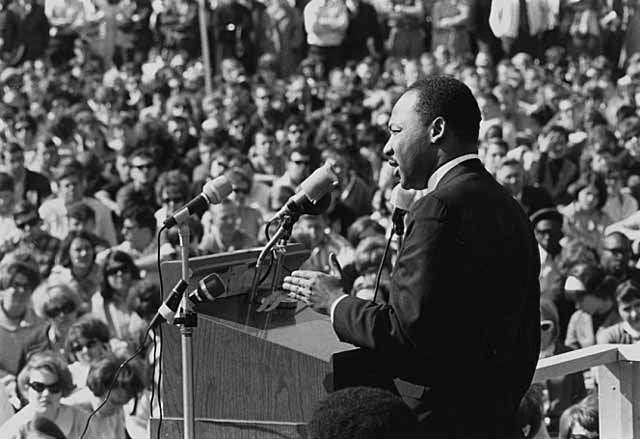
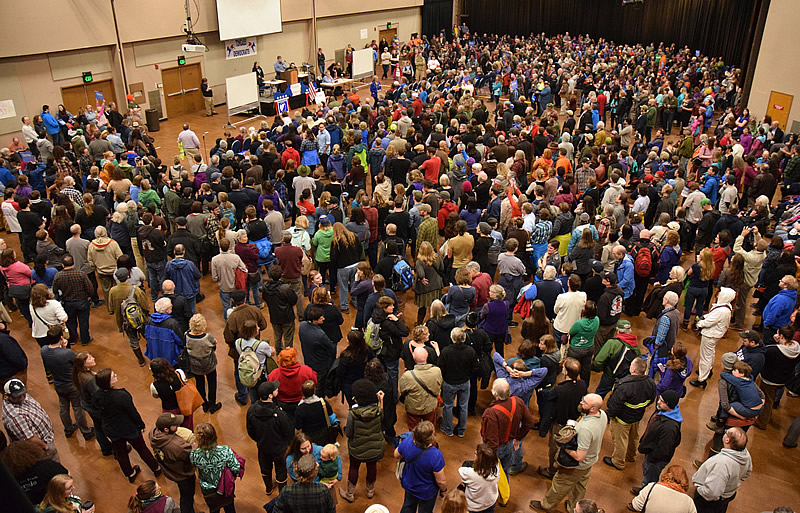
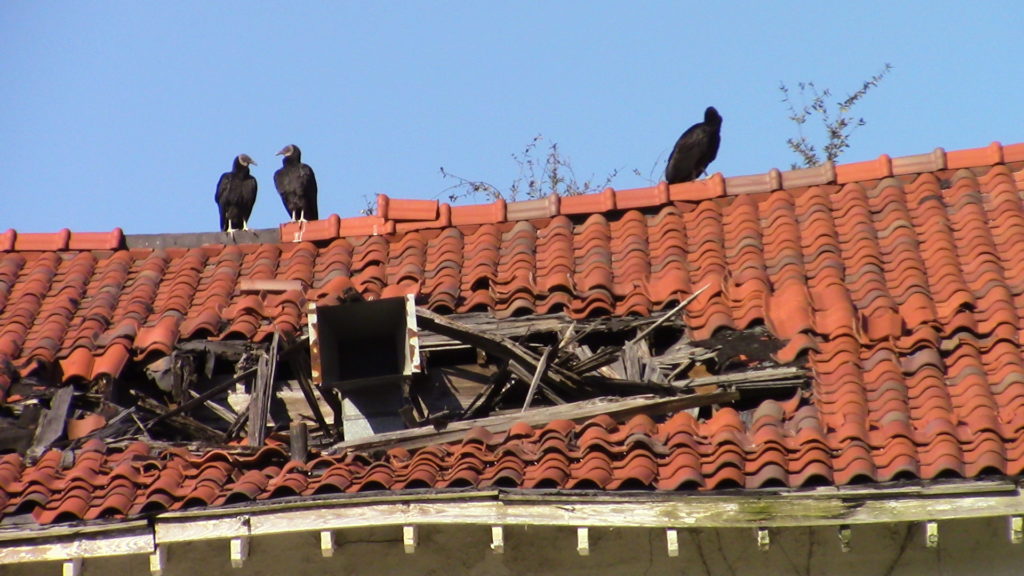
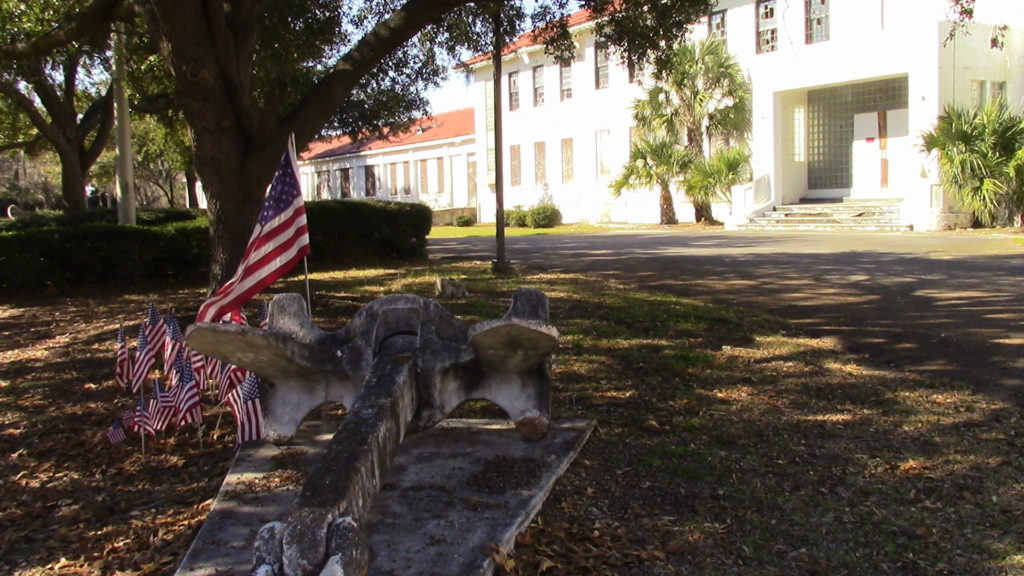
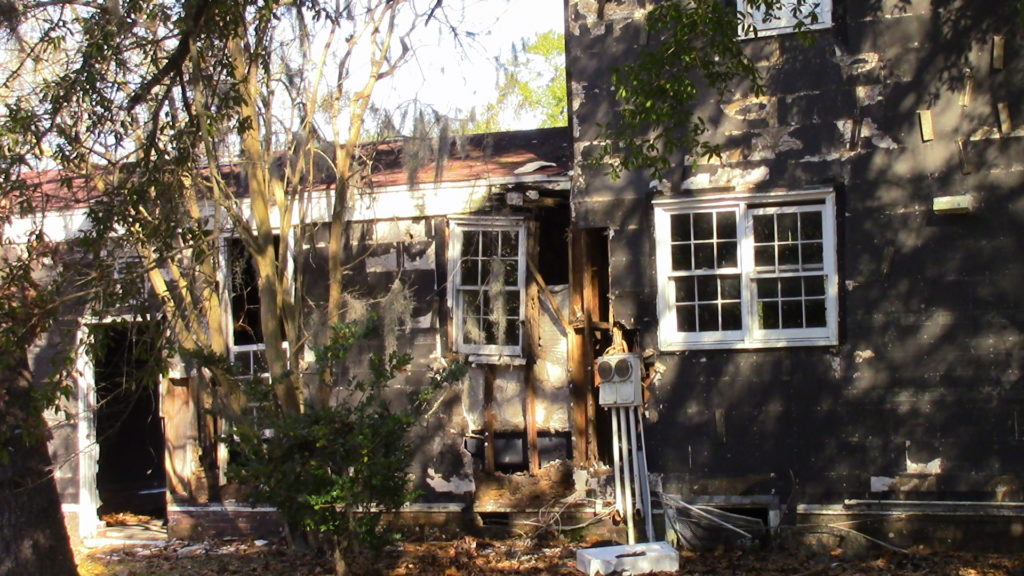
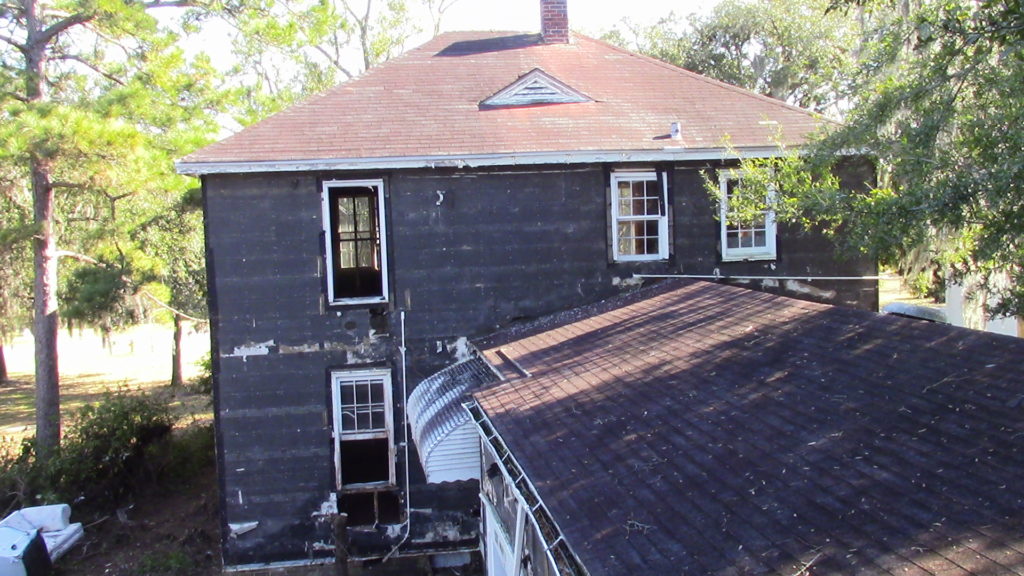
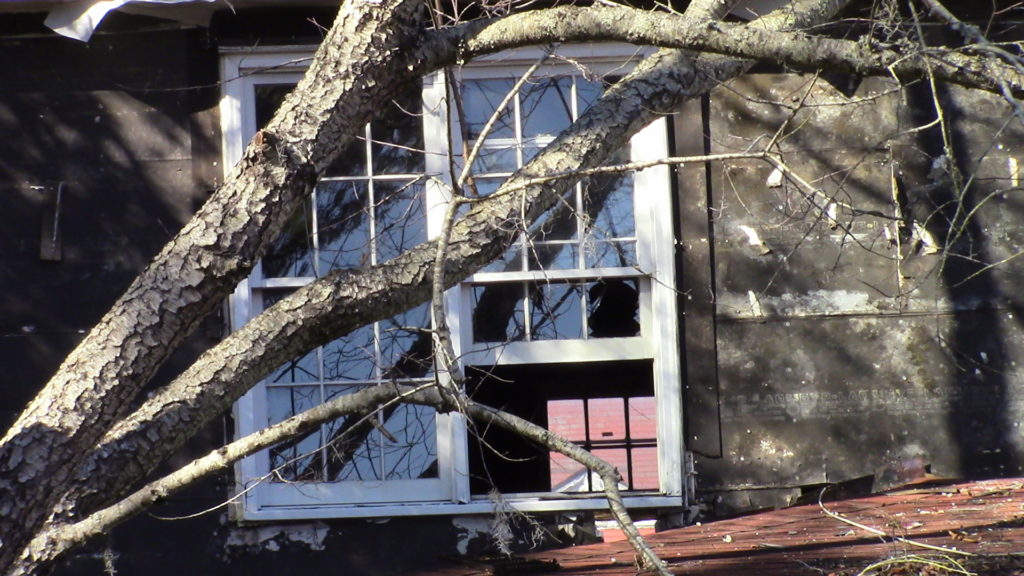
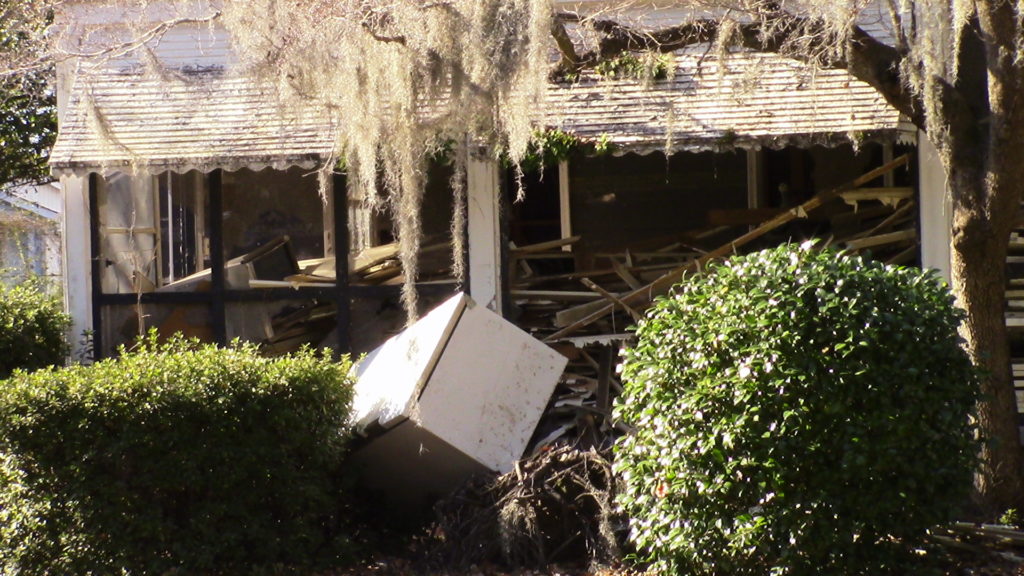
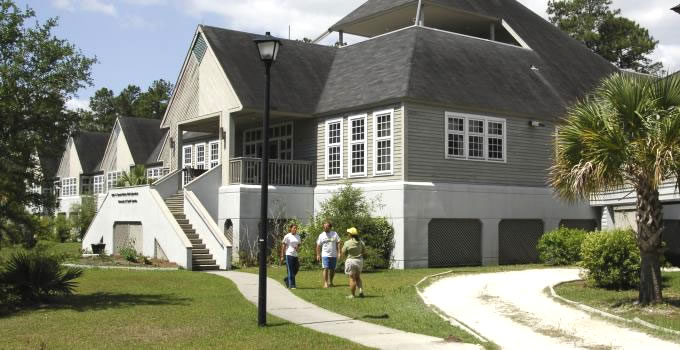
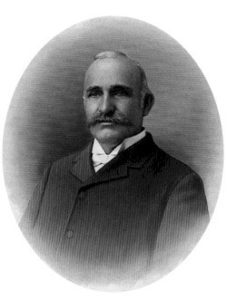

 We Can Do Better, South Carolina!
We Can Do Better, South Carolina!
























